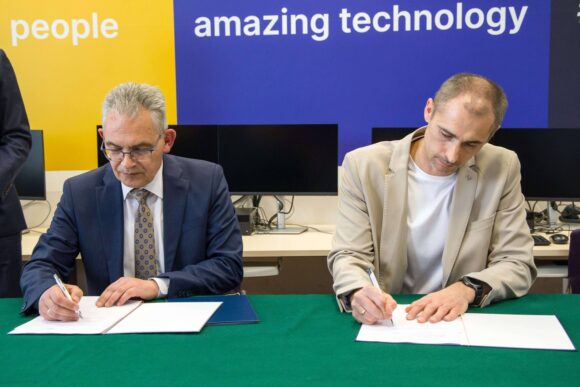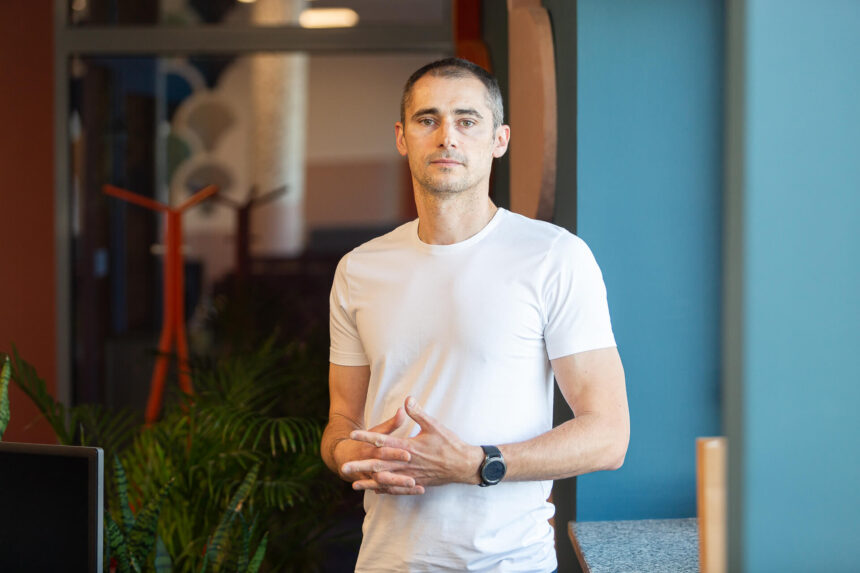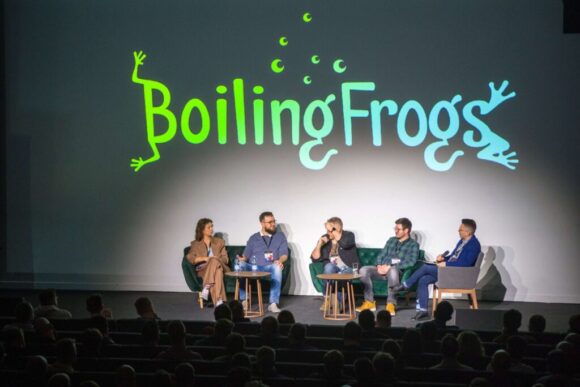
Our beginnings – part 2. Learning never ends in this profession – the story of Paweł

Do you remember Leszek’s beginnings? The time has come for the next part of the “Our Beginnings” series, in which we talk about how we wound up in the IT industry. It’s time for Paweł.
The stories are collected by Patryk, Team Leader and the author of the entire series.
The floor is his…
Paweł is an engineer and our product director. He will bring his history back to the times of the Commodore 64 and the Amiga, something I can barely remember. Let’s get started!
Also read: Our beginnings – part 1. You become a specialist in a team – Leszek’s story
Commodore 64 and Bajtek – it’s time to start learning
I got interested in programming a long time ago. When I was in the seventh or eighth grade of primary school, I got my dream Commodore 64. After a few months of going through all the available games, I thought it would be great to “tell” the computer what to do. At that time, I had no idea about the existence of the Internet. The only source of knowledge was the Commodore Basic language textbook attached to the computer and the “Bajtek” magazine. To this day, I remember my first computer program that “solved” problems in physics. Then it was time for “sprite”, also known as “Moveable Object Block”, which is the graphic element displayed on the screen that I was controlling with the joystick.
It didn’t end with Commodore. Next step? Amiga!
The next step was Amiga 600 and the Amos Pro programming language. At that time, I found myself in a programming club at the Municipal Cultural Center. In my third year of high school, I became the owner of the first PC with a staggering-sized drive of 1 GB. Yes, 1 GB of disk memory, not RAM? I started learning Pascal on my own and eventually decided to study computer science and become a programmer.
Pascal cards? Stone!
He did as he decided. After trying to tame the code on his own, Paweł entered IT studies.
When it comes to studying time, one of the things that stuck in my memory the most, but also influenced how I wrote and worked with the code, were the short tests of Pascal. We had to write on paper programs that implemented not very complicated algorithms. Most people thought it was pointless, but in retrospect, I think it was a great way to understand code and learn how to “debug” in memory.
With time Paweł came across more familiar languages, that is:
Later it was time for C, C++, and Java, and in 2001, being in the third year of my studies, I started working as a programmer. I remember after my first day of work while returning home, I went to a nearby bookstore to buy a book about JSP (JavaServer Pages). It was at this point that the period of very fast learning began and it actually continues to this day. In this profession, if you want to be good, you must constantly learn and develop your competencies. This makes this profession very demanding, but also – very interesting.
And with this accent, we close the story of Paweł. Inspirational, right? I would like to add that the opportunity to work with such experienced developers who remember the beginnings of the Internet in Poland is a real pleasure and an invaluable experience.
And in the next part of this series, I – Patryk – will share my story with you. There won’t be as much coding history as in the case of Paweł or Leszek, but it will certainly be interesting. I will share my biggest challenges, but I will also suggest what you should know to join AUCTANE. See you soon!
